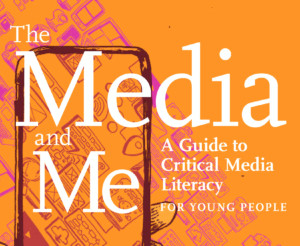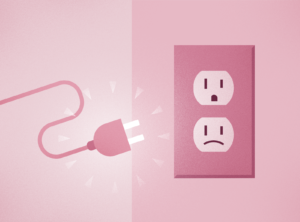Social Media Jacked Your Attention And Sold It, How to Get It Back and Thrive

Here’s the problem: we sold our attention and it made us dumb, polarized and easy to manipulate. And another thing, it broke the economy.
Former Googler Tristan Harris, argues that companies that created social media and mobile tech have constructed an “extractive attention economy”. Among the problems this new economy has created, his Center for Humane Technology points to digital addiction, mental health challenges, a breakdown of truth, polarization, political manipulation and superficiality.
Harris claims social media downgrades humanity with artificial intelligence (AI) that has gotten very good at exploiting our weaknesses. (He’s right, read more about breakthroughs in computer EQ.)
In the basic transaction of the extractive attention economy, we trade our identity and our attention for some free services. These AI-driven advertising engines (which account for about 85% of Google and Facebook revenue) are incredibly effective—the most powerful business models ever assembled. But Harris argues, attention addiction has inflicted significant unintended consequences.
In addition to distraction, manipulation and a loss of privacy, the extractive attention economy is contributing to income inequality. AI-powered automation in social media, manufacturing, health care, transportation and retail, is improving service delivery but aggregating wealth at an unprecedented rate. With ubiquitous machine learning, it’s about to get worse.
Turning the Tide to Contribution
Harris is fighting the extractive economy with a cross-disciplinary advocacy effort including leaders in technology, humanity, mindfulness, philosophy and education. He advocates for tech that helps us focus, builds common ground and supports democracy.
To address growing income inequality, tech entrepreneur turned presidential candidate Andrew Yang has proposed a universal basic income. He’s leading a growing list of supporters.
Putting people back in charge of their data and giving them a chance to profit from sharing it is another approach to the extraction problem and might even provide part of a basic income solution. Blockchain data markets could align supply—users with lots of data—with demand, or projects in need of big datasets.
Harmony is a San Francisco startup with a team of ex-engineers from Google, Amazon, Microsoft, and Apple. “Harmony’s team is looking seriously into how global citizens could own, control and monetize their own data on the blockchain,” explains Michael Spencer. He speculates that a basic income could be derived from bartering our data to get access, not just a monetary stipend but a wide range of bundles, services, or subsidized loans for things like housing, education and healthcare
Another solution is a social economy that measures and rewards contribution. Data could tell the value creation story of how well one person supports the growth of another. A social worker that places foster youth will be rewarded based on success in school, work and life. A tutor will be rewarded based on academic development and learner rating. Public and philanthropic subsidies could boost remuneration for caring professions–better pay for early learning teachers and home health aides, for example. Distributed ledger technology could support the monetization of social value exchange–one person helping another.
In a promising development, schools are paying more attention to social and emotional learning—they are adding awareness literacy to data literacy and helping youth pay attention to their attention. Agency, or the ability to manage yourself and your learning, may be the most important skill in the innovation economy. The 200 schools in the New Tech Network provide students with feedback on their agency as part of every project.
Schools can also encourage and enable contribution. Instead of a series of small problems with simple answers, we could ask young people to pick a few big problems and get started on making a difference. This would build mindsets and skillsets around contribution rather than extraction.
Turning the tables on the extractive attention economy will require us all to be more mindful of our attention and data. We need social entrepreneurs (and investors) to stand up a social economy that rewards contribution. And we need to support the development of a contribution mindset in our youth—and once they spin that flywheel, there’s no stopping them.
For more see:
- You’ve Heard Computers Have Low EQ, Not Anymore
- Sharing: The New Superpower
- Contribution: Schools Alive With Possibility
Stay in-the-know with innovations in learning by signing up for the weekly Smart Update.
This post was originally published on Forbes.







0 Comments
Leave a Comment
Your email address will not be published. All fields are required.